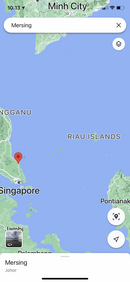Mersing (Malaysia) (AFP) – A British man and French teenager were rescued in Malaysia Saturday three days after going missing while diving, but the man's son was still missing, police said.
The trio and their instructor got into trouble Wednesday after they surfaced from a dive near a southern island but could not find their boat.
The Briton, 46-year-old Adrian Peter Chesters, and Frenchwoman Alexia Alexandra Molina, 18, were found by local fishermen and picked up by marine police, said official Cyril Edward Nuing.
"We have rescued two divers that were reported missing while doing scuba diving activities," he told a press conference in the coastal town of Mersing, the base for search operations.
"They have survived, and are now in hospital in a stable condition."
Chesters's son, 14-year-old Nathen, who holds Dutch citizenship, remains missing and search and rescue operations are continuing, he said.
The instructor, a 35-year-old Norwegian woman, was rescued Thursday and admitted to hospital.







